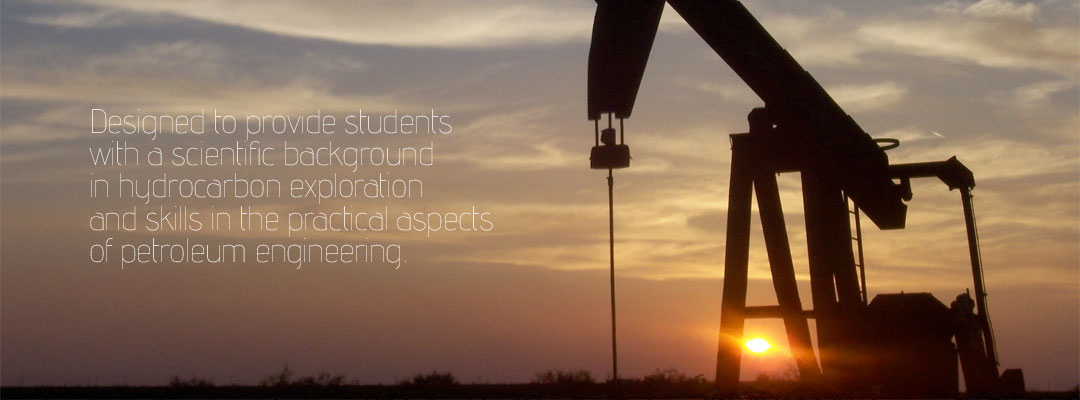Course Information
| Duration (hours) | 39 |
| ECTs | 5 |
| Practice | Laboratory |
| Instructor(s) | Prof. Nikos Pasadakis |
Description
Hydrocarbons chemistry. Origin of oil and Gas. Organic matter, carbon cycle. Generation of petroleum, source rocks, migration and reservoir geochemistry. Biomarkers. Chemical analysis. Petroleum and the environment.
Syllabus
1st Lecture | Introduction, world energy, global supply and demand of oil and natural gas, perspectives |
2nd Lecture | Hydrocarbons chemistry, physicochemical properties, composition of oil and gas |
3rd Lecture | Origin of fossil fuels, carbon cycle, chemical composition of biomass |
4th Lecture | Organic matter in sediments, accumulation, preservation, transformation, formation of kerogene |
5th Lecture | Formation of oil and gas, abiogenic petroleum concept |
6th Lecture | Non-conventional fossil fuels, shales, tar-sands, hydrates |
7th Lecture | Analytical methods in petroleum geochemistry |
8th Lecture | Geochemical evaluation of analytical data |
9th Lecture | Biomarkers geochemistry I |
10thLecture | Biomarkers geochemistry II |
11thLecture | Fate and transport of hydrocarbons in the subsurface, applications of reservoir geochemistry |
12thLecture | Basics of petroleum refining |
13thLecture | Environmental aspects of petroleum production, fingerprinting |

Petroleum Engineering postgraduate program of the Technical University of Crete is a one-year, full-time program, designed to provide students with a scientific background in hydrocarbon exploration and skills in the practical aspects of petroleum engineering. The program begins in October, and leads to a Master of Science (MSc) degree. The program is run by the School of Mineral Resources Engineering.








